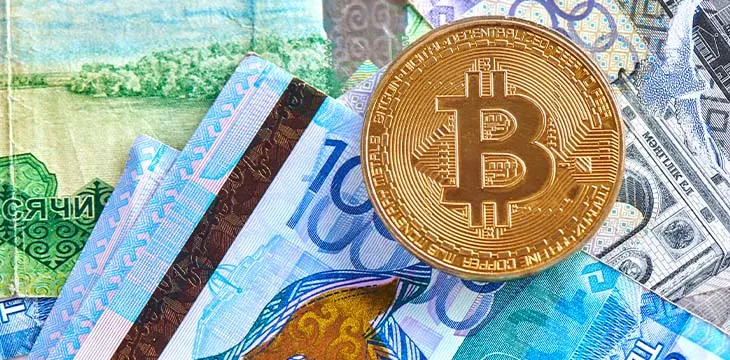|
Getting your Trinity Audio player ready...
|
Kazakhstan’s central bank, the National Bank of Kazakhstan, is still on course to roll out key digital currency regulations and initiatives. Central bank Chairman Galymzhan Pirmatov reveals that the institution is carefully studying the digital currency market and is set to unveil some of its plans before 2022 ends.
Pirmatov made the revelation while speaking during a press conference, as reported by Tengri News. When asked if he thought the Kazakhstan National Bank was late in its decision to regulate digital currencies, he said:
“I do not think that the National Bank is late. We, like many central banks and financial regulators in the world, are carefully observing and studying this issue.”
Pirmatov added that the central bank’s approach to the industry considers how all aspects of digital assets and blockchain technology can benefit the country. Kazakhstan is attracted by the possibilities the innovation brings and wants to exploit it without posing a threat to macro-stability and consumer protection.
“The approach is very simple: We aren’t going to ignore this market. We want to extract the maximum profit from the innovative potential these technologies give us. Now it’s too early to talk about legalizing cryptocurrency,” he said.
He added that the bank will release the methodology it will use to decide on launching a CBDC later this month. Once this is released, a final decision on the digital tenge should be reached before the end of the year.
Kazakhstan and digital currency regulations
Kazakhstan has been taking significant strides toward regulating digital assets over the years. In a bid to protect consumers, the Central Asian country placed a prohibition on how much retail investors can bet on digital assets.
A law passed last year allows citizens to invest 10% of their income in digital assets. Similarly, Kazakhstan also has strict KYC, AML, and CTF laws for digital currency firms.
The country has also been directing regulations on the block reward mining industry. In February, Kazakhstan suggested raising taxes paid by block reward miners by 500%. The country also requires block reward miners to register and file periodical status reports on their operations.
Following China’s clampdown on the activity, Kazakhstan became the second largest contributor to the hash rate of Bitcoin block reward mining after the United States. But energy production constraints have caused it to halt power supply to miners often. Reuters reports that the country has mostly lost its luster for miners.
Watch: The BSV Global Blockchain Convention panel, Blockchain mining & energy innovation
https://www.youtube.com/watch?v=RzSCrXf1Ywc&t=24114s

 07-13-2025
07-13-2025 





